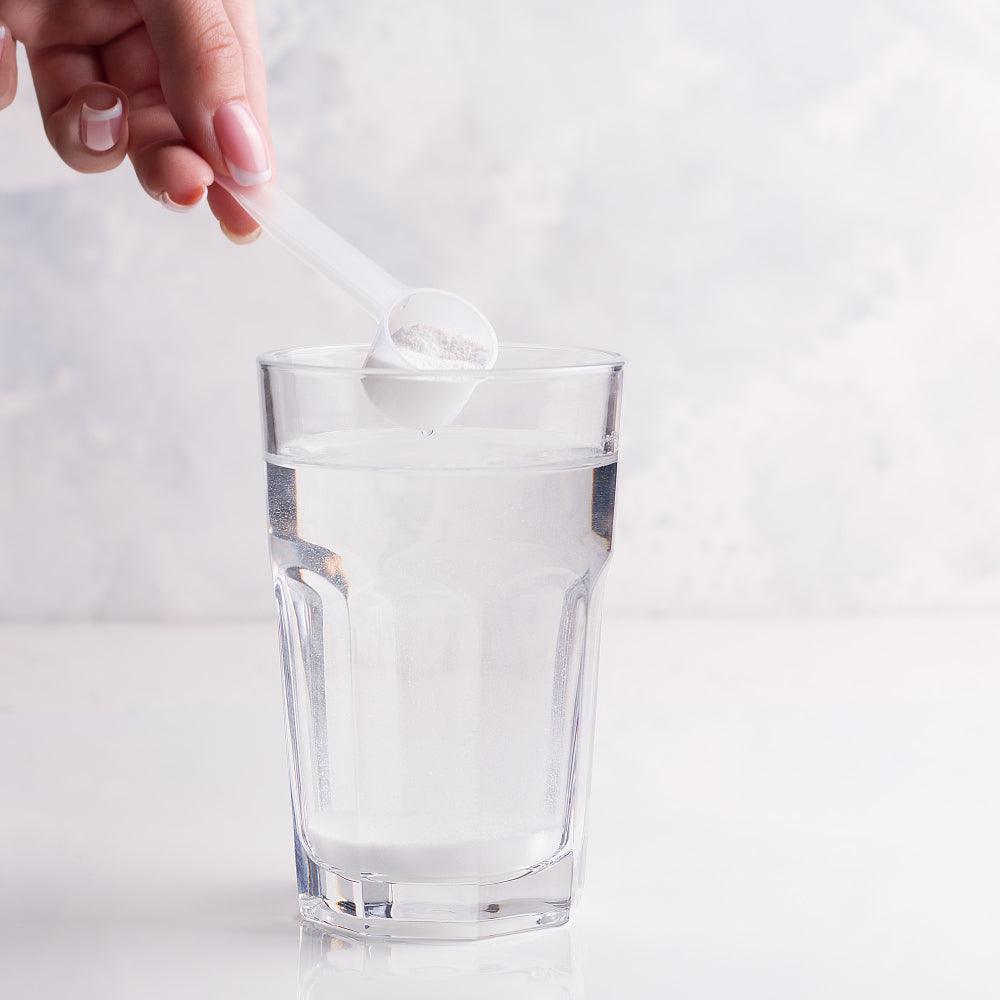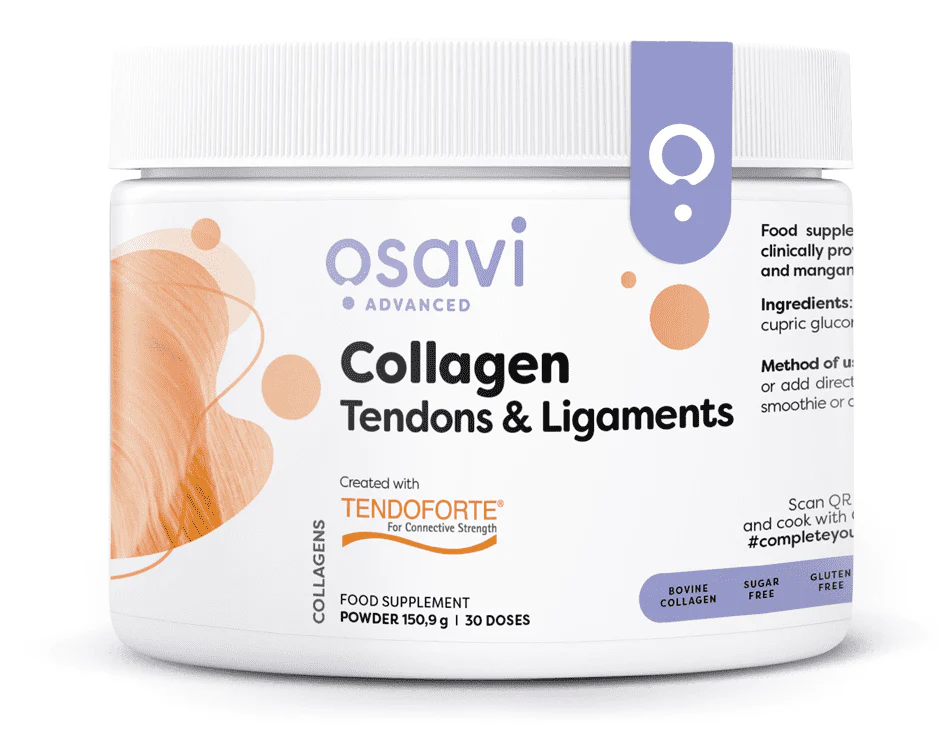How Long Does Creatine Take to Work?


Related products
Creatine, a naturally occurring amino acid found in muscle cells, has become a staple supplement in the fitness and athletic communities. Its primary role is to support energy production during high-intensity exercise. However, the effectiveness and the time frame within which creatine shows results can vary significantly. This article aims to provide an in-depth analysis of the time it takes for creatine supplements to exhibit its effects, grounded in scientific evidence and expert opinions.
What is Creatine?
Creatine is synthesised in the liver, pancreas, and kidneys and is primarily stored in skeletal muscles. It plays a crucial role in the production of adenosine triphosphate (ATP), the energy currency of the cell. Dr. Emily Brown, a sports nutrition expert, explains, "Creatine enhances the body's capacity to perform high-intensity work and assists greater muscle growth and performance improvements."
There are various forms of creatine supplements available, including creatine monohydrate, creatine ethyl ester, and buffered creatine. Each type claims distinct absorption rates and efficacy. Creatine monohydrate, the most researched form, is renowned for its high efficacy and safety profile.
The Science Behind Creatine
At a cellular level, creatine works by increasing the availability of creatine phosphate, a molecule that rapidly regenerates ATP during intense physical activity. This process enhances one's ability to maintain high-intensity exercise performance for longer periods. A study published in the "Journal of Sports Science and Medicine" found that creatine supplementation can lead to significant improvements in strength, power, and muscle mass.
Dr. John Williams, a physiologist, notes, "Creatine's ability to increase muscle mass and strength is not just beneficial for athletes but can also be crucial for elderly individuals to maintain muscle function." The benefit of creatine extends beyond athletic performance, highlighting its versatility as a supplement.
Factors Affecting Creatine Absorption and Effectiveness
The effectiveness of creatine can be influenced by several individual factors, including age, gender, baseline muscle mass, diet, and exercise regimen. For instance, individuals with a higher baseline muscle mass might experience more pronounced effects. Dietary factors, particularly the consumption of carbohydrates and protein, can enhance creatine uptake due to the increased insulin release, as suggested by research in the "American Journal of Clinical Nutrition."
Furthermore, the type of creatine plays a significant role in its absorption and effectiveness. Creatine monohydrate is widely recognised for its high bioavailability. In contrast, other forms like creatine ethyl ester might offer faster absorption rates but have shown less efficacy in increasing muscle creatine levels, according to a study in the "Journal of the International Society of Sports Nutrition."
In conclusion, the time it takes for creatine to work and its effectiveness are subject to a range of factors. Understanding these can help individuals tailor their supplementation strategy for optimal results. The next sections of this article will delve into the typical timeline for creatine results, real-life experiences, and ways to maximise the effects of creatine, providing a comprehensive guide for anyone considering its use.
Typical Timeline for Creatine Results
Initial Phase: Loading Phase and Its Duration
The initial phase of creatine supplementation typically involves a loading phase, which aims to rapidly saturate the muscle stores with creatine. This phase usually lasts for 5-7 days, involving a daily intake of around 20 grams, divided into 4 doses. Dr. Laura Smith, a sports nutritionist, states, “The loading phase can lead to quicker results in terms of increased muscle strength and size due to faster saturation of muscles.”
Maintenance Phase
Following the loading phase, a maintenance dose of 3-5 grams daily is recommended. The changes in muscle size and strength typically become noticeable after about 4 weeks of consistent supplementation. This phase is crucial for sustaining the increased muscle creatine levels achieved during the loading phase.
Long-term Use
Over months and years, long-term creatine use has been linked to sustained improvements in muscle mass and strength, especially when combined with resistance training. However, it's important to note that individual results can vary based on diet, exercise, and biological factors.
Real-life Experiences and Research Findings
Studies have consistently demonstrated the efficacy of creatine in enhancing muscle strength, power output, and muscle fibre size. A meta-analysis in the "Journal of Strength and Conditioning Research" concluded that creatine supplementation, on average, results in a significant increase in muscle strength and power.
Anecdotal Experiences
Many athletes and fitness enthusiasts report noticeable improvements in their workout performance and recovery times after starting creatine supplementation. While these experiences are subjective, they align with the general findings of scientific research.
Maximising the Effects of Creatine
Recommended Dosages and Timing
The efficacy of creatine can be maximised by adhering to the recommended dosages and timing. The standard recommendation involves a loading phase followed by a maintenance dose, as previously described. Timing creatine intake post-workout may enhance its absorption and effectiveness.
Combining with Other Supplements and Diet
Combining creatine with a carbohydrate or carbohydrate-protein supplement can enhance its uptake due to the insulin-mediated increase in muscle creatine accumulation. A balanced diet rich in proteins and carbohydrates can also augment the benefits of creatine.
Role of Exercise
Exercise, particularly resistance training, plays a pivotal role in conjunction with creatine supplementation. Exercise stimulates muscle hypertrophy and strength gains, which are further enhanced by creatine.
Potential Side Effects and Considerations
Creatine is generally safe, but side effects can occur, primarily gastrointestinal distress and muscle cramping. These effects can often be mitigated by ensuring adequate hydration and dividing the daily dose into smaller portions.
Who Should Avoid Creatine
Individuals with pre-existing kidney conditions should consult with a healthcare provider before starting creatine supplementation. Pregnant or breastfeeding women are also advised to avoid creatine due to the lack of extensive research in these populations.
In summary, understanding the timeline for creatine results, maximising its effects through appropriate dosages and lifestyle choices, and being aware of potential side effects are crucial for anyone considering creatine supplementation. This comprehensive approach ensures that individuals can make informed decisions about their supplementation strategies.
Conclusion
In concluding this exploration of creatine supplementation, it is evident that creatine is a highly effective supplement for enhancing muscle strength, size, and overall athletic performance. The typical timeline for observing tangible results from creatine involves an initial loading phase of approximately one week, followed by a maintenance phase, where changes in muscle size and strength become more apparent after about four weeks. Long-term use of creatine, when coupled with consistent exercise and a balanced diet, can lead to sustained improvements in muscle mass and athletic performance.
The effectiveness of creatine is backed by substantial scientific research, as well as the anecdotal experiences of athletes and fitness enthusiasts. These findings collectively underscore creatine's role as a beneficial supplement for those looking to enhance their physical performance and muscle development.
To maximise the effects of creatine, proper dosing, timing, and combining it with other dietary elements and exercise routines are crucial. It's also important to consider individual factors such as baseline muscle mass, diet, and exercise regimen, as these can influence the effectiveness of creatine.
While creatine is generally safe for most individuals, it is important to be aware of potential side effects and to consult with a healthcare professional, especially for those with pre-existing health conditions or specific health concerns like kidney health or pregnancy.
Overall, creatine stands out as a well-researched and highly effective supplement in the realm of sports nutrition. Its ability to significantly enhance muscle function and athletic performance makes it a valuable tool for athletes, bodybuilders, and fitness enthusiasts. However, it should be used thoughtfully and in conjunction with a healthy lifestyle to achieve the best results. As with any supplement, individual experiences may vary, and it is advisable to approach creatine use with a personalized strategy that considers one's unique physical and health profile.





















 Rated Excellent by 26,523+ Reviews
Rated Excellent by 26,523+ Reviews